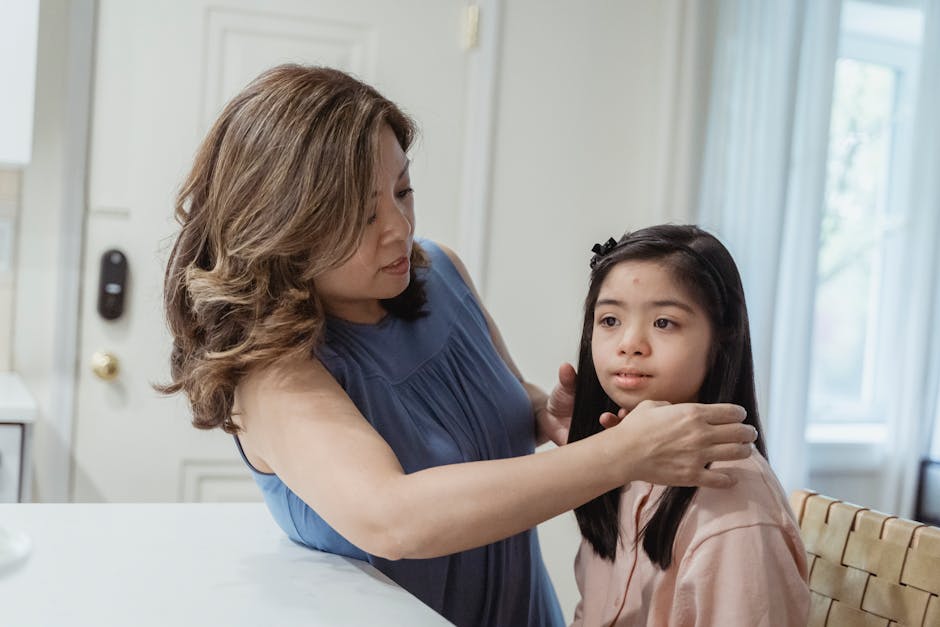TLDR
Maintaining polite, clear communication and shared routines helps co-parent effectively amid changing life circumstances, focusing on child's well-being and gradual emotional rebuilding.

- Situating Co-Parenting Within a Relational Health Framework in Richmond
-
Co-parenting success hinges on more than just visitation schedules—it’s about nurturing the whole child through resilient relationships embedded in everyday Richmond life. The National Library of Medicine’s “Parenting and Child Development: A Relational Health Perspective” reminds us that a child’s well‑being is woven through the fabric of all their connections. For families pivoting from uncertain living arrangements—military PCS to Fort Gregg‑Adams, consulting gigs up and down I‑95, or contracts pulling families west—stability depends on predictable roles and candid communication channels.
Richmond Anecdote
Think of how quickly communication can unravel when a parent forgets about soccer tryouts at Bryan Park or when visitation overlaps with a Flying Squirrels home game. Digital platforms like OurFamilyWizard—used by an estimated 60% of co‑parenting households surveyed in 2022—bring grounded solutions: shared calendars, expense logs, and message vaults, so a miscue doesn’t derail trust.
Historical research backs this up. Smith et al. (1978), studying over 800 post‑Vietnam military families, found that children did markedly better when contact with both parents was clear and steady, even amidst broader family change.
Trust-based referrals—whether to a child psychologist near Carytown or that first algebra tutor recommendation at Maggie Walker—work best as open‑ended invitations. Like the gentle guidance at a Fan District block party, these referrals build reliability without pressure, offering families a Richmond‑sized safety net.
- Emotional Identity Milestones as Anchors for Shared Progress
-
Emotional landmarks mark the journey far more than paperwork ever could. Selling a wedding ring on eBay, or at Caravati’s in Scott’s Addition, can be both a financial and symbolic leap—a private promise to shift one’s outlook. Tech tools like MyRegistry.com or Richmond’s own consignment shops can turn these moments into collaborative gestures, such as pooling funds to send a child to CodeVA’s summer STEM camp.
Local Anecdote
One parent celebrated “the first real laugh” post‑divorce by sharing a screening of Paddington 2 at the Byrd Theatre—a rare evening both parents and kids remembered as a watershed. That spark isn’t trivial; it’s a sign the family’s emotional bandwidth is on the mend. Subtle referrals here include suggesting a show at Richmond Improv Comedy or a memory‑preservation session at Chop Suey Books for discovered keepsakes, extending connection without obligation.
These transition milestones, handled with care and a nudge of local wisdom, create space for co‑parents to support each other—often wordlessly—layering emotional repair atop logistical teamwork.
- Negotiation Touchpoints and the House‑Hunting Nexus
-
Joint calendars can become battlegrounds: the kid has a field day at Maymont but it clashes with a parent’s work trip to D.C., or the ballet recital at Richmond Ballet falls on a holiday weekend. Digital calendars (Google Calendar, 2houses) with color‑coding turn conflicts visible a month out, so solutions can be crafted—not dictated.
Richmond Home Search Example
In Richmond’s fast‑moving real estate scene, searching for a new home after separation often reflects each family’s constraints: school zones for Binford Middle, proximity to VCU Health, or easy access to the Pulse bus line. A referral to a transitions realtor at Happy New Beginnings, extended via a gentle email looping in both co‑parents, lets the family define the path forward: budget, walkability, and minimal in‑person showings, all framed around anchoring the kids in a thriving neighborhood.
Much like comparing open houses on Zillow for the perfect Fulton Hill starter home, these steps are best handled with transparency. Tying referrals to defined shared goals—like securing a lease before September to nail down a spot at a favorite elementary—keeps negotiations productive, transforming flashpoints into progress markers.
- Operationalizing Trust‑Based Referrals and Milestone Guidance: A Richmond Playbook
-
- Mapping the Ecosystem: Start with a relational audit. List every professional—from a pediatrician at VCU Health to tutors in Windsor Farms—in a shared Airtable or Trello sheet, showing credentials, rates, and referral sources so each parent has equal access.
- Curated Referral Pools: Maintain a “Top Three” provider list for essentials: mental health (Psychology Today for Richmond‑based clinicians), education (Yelp or RVA specialty tutors), and after‑school (local YMCA branches). Update quarterly to keep the list relevant.
- Milestone Check‑Ins: Ritualize touchpoints tied to real‑life markers. Schedule a joint call on a child’s key birthday (ages 7–9 are cognitively crucial) or coordinate a moving‑day lunch for the parent settling into a new North Side apartment—moments that promote forward focus.
- Digital Infrastructure & Data Privacy: Insist on apps with end‑to‑end encryption. OurFamilyWizard’s file vault or Signal’s disappearing messages provide secure, timestamped records for medical, school, and financial documents.
- Feedback Loops & Adjustment: Once a quarter, request anonymous pulse checks from teachers at Mary Munford, coaches at Richmond Little League, and pediatricians at Children’s Hospital. Adjust referral networks accordingly, folding in telehealth options like Talkspace or BetterHelp for older kids.
- Celebrating Micro‑Wins: Highlight mini‑milestones—maybe your child aces a science test while splitting weeks between Church Hill and the West End, or shares pizza at Bottoms Up with both parents cheering. Mark these wins with a keepsake from Artifact Uprising to build shared pride.
Neighborhood Example
A family split between Bellevue and Forest Hill found harmony by trading photos of their child excelling at Westover Hills Elementary and playing in the fields at Pony Pasture. Recognizing these “micro‑wins” turned choppy transitions into steps toward something brighter.
History’s best partnerships—think Churchill & Roosevelt, or locally, the founders of the James River Park System—were built on clear roles and open lines of trust. That blueprint, scaled to our streets and schools, lets children thrive and every adult step into the next chapter with assurance.
co-parenting, relational health, communication, stability, trust, shared milestones, emotional repair, boundary setting, effective negotiation, digital tools, local resources, trust-based referrals, safety net, family transitions, community support, neighborhood connections, milestone celebrations, collaborative parenting, emotional well-being, respectful distance